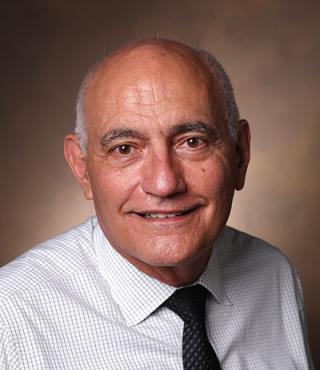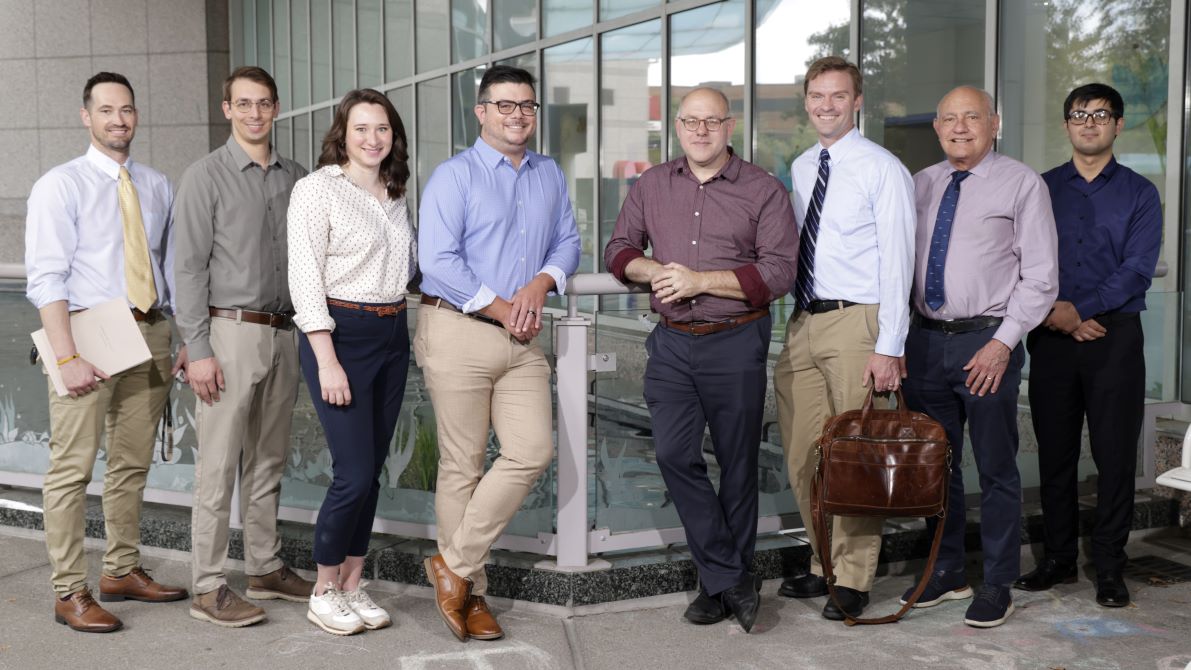The Division of Pediatric Endocrinology and Diabetes offers a vibrant and growing research environment. Faculty and fellow research projects include both basic science and clinically-oriented projects aimed at understanding and treating endocrine disease. Particular areas of interest include the pathogenesis of Type 1 and Type 2 diabetes, the regulation of glucose metabolism, the regulation of bone growth and development, and the integrated response to hypoglycemia. These research projects receive funding from the NIH as well as from pharmaceutical sponsors.
Please see below to learn more about our investigators and their research efforts.

Kristie I. Aamodt, MD, PhD
Dr. Aamodt’s research focuses on the microenvironmental, molecular and genetic factors involved in development of the endocrine pancreas and diabetes pathophysiology with the goal of identifying new strategies to treat diabetes.
Click here to learn more about Dr. Aamodt's research.

Karishma Datye, MD, MSCI
Dr. Datye’s research focuses on learning about barriers to care that adolescents with type 1 diabetes face. She is also interested in developing interventions to improve adolescent self-management and ultimately glycemic outcomes in this population. She has completed quality improvement training and uses these principles to guide her work in the endocrinology and diabetes clinics.
Click here to learn more about Dr. Datye’s quality improvement work.

Justin Gregory, MD, MSCI
Dr. Gregory's type 1 diabetes research seeks to mechanistically define the deleterious metabolic and cardiovascular effects of iatrogenic hyperinsulinemia caused by peripheral insulin delivery. He is working to translate these findings into therapeutic strategies that will restore an appropriate balance of insulin between the liver and insulin-sensitive peripheral tissues, such as hepatopreferential and oral insulin analogs and intraperitoneal insulin delivery. Ultimately, he aims to quantify the cardiovascular benefits gained when the appropriate insulin balance between hepatic and peripheral tissues is restored.
Click here to learn more about Dr. Gregory’s research.

Daniel Moore, MD, PhD
Dr. Moore's research seeks to understand the cellular and molecular mechanisms that govern immune tolerance and to prevent and reverse Type 1 Diabetes. His research has contributed to our understanding of the role played by B lymphocytes in the development of autoimmune disease and transplant rejection and has broadly defined important aspects of the physiology of diabetes.
Click here to learn more about Dr. Moore’s research.

Bill Russell, MD
Dr. Russell studies ways to predict and to prevent type 1 diabetes (T1D). He is the Principal Investigator of the TrialNet Clinical Center at Vanderbilt, a member of the Type 1 Diabetes TrialNet consortium. The Type 1 Diabetes TrialNet consortium is an international research network funded by the National Institutes of Health to prevent or delay type 1 diabetes in people at risk and to preserve insulin secretion in those who already have T1D. He led the international abatacept trial (TN18) to determine whether an immune system modulating drug (CTLA4-Ig) can prevent the development of T1D in people at high risk to progress to full-blown T1D. He helped establish the Type 1 Diabetes Immunotherapy Clinic at the Monroe Carell Jr. Children’s Hospital at Vanderbilt to increase accessibility of newly FDA-approved therapies to patients for the delay and prevention of T1D. The Vanderbilt TrialNet Clinical Center was instrumental in demonstrating the effectiveness of the drug Tzield (teplizumab), the first of such agents FDA approved to delay progression to type 1 diabetes in individuals at risk.
Click here to learn more about Dr. Russell’s research.

Ashley Shoemaker, MD, MSCI
Dr. Shoemaker's research focus is hypothalamic obesity, including genetic disorders and hypothalamic injury. By identifying the precise pathophysiology underlying different forms of syndromic obesity, Dr. Shoemaker is working to develop targeted weight loss treatments. Disorders studied include Prader-Willi syndrome, pseudohypoparathyroidism, MC4R pathway disorders, and adolescent type 2 diabetes.
Click here to learn more about Dr. Shoemaker’s research.

Jill Simmons, MD
Dr. Simmons’ clinical and research interests include type 1 diabetes as well as pediatric metabolic bone diseases such as hypophosphatasia, osteogenesis imperfecta, osteoporosis, and rickets. She has been a successful local principal investigator for multiple groundbreaking clinical trials in metabolic bone disease, including asfotase alpha in infants with severe hypophosphatasia, romozosumab and setrusumab in pediatric patients with osteogenesis imperfecta, and burosumab in pediatric patients with hypophosphatemic rickets. She is also an active investigator in several international longitudinal observational registries and multiple ongoing clinical trials.
Click here to learn more about Dr. Simmons’ research.
Jaclyn Tamaroff, MD, MSCI
Dr. Tamaroff’s research program focuses on the use of wearable technology and the intersection between glycemia, insulin sensitivity, and cardiac disease. She has evaluated the use of continuous glucose monitors and the relationship between dysglycemia and cardiomyopathy in individuals with Friedreich’s Ataxia. She is currently investigating similar questions in individuals with Duchenne Muscular Dystrophy (DMD). Additionally, in individuals with DMD or pseudohypoparathyroidism, she is assessing the utility of remote monitoring during research studies to assess glycemia, activity, heart rate, and sleep.
